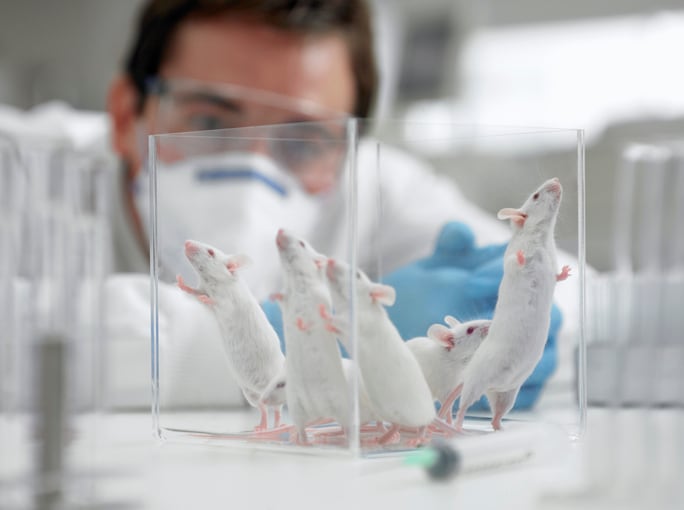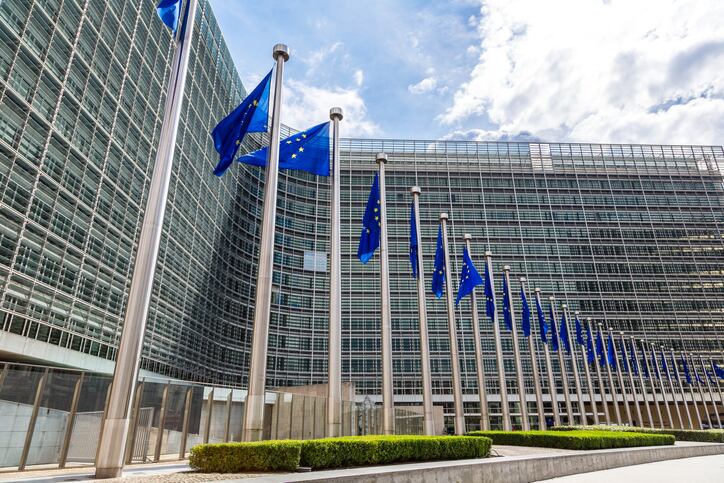Today, Dove and The Body shop announced a partnership with Humane Society International (HSI); People for the Ethical Treatment of Animals (PETA); Cruelty Free Europe; Eurogroup for Animals; and the European Coalition to End Animal Experiments (ECEAE) that aimed to mobilise consumers to sign a European Citizens’ Initiative* entitled ‘Save cruelty free cosmetics – Commit to a Europe without animal testing’. The European Citizens’ Initiative was registered on June 30, 2021 with signature collections open from today. It called on the Commission to protect and strengthen the cosmetics animal testing ban; transform EU chemicals regulation; and modernise science in the EU.
*A European Citizens’ Initiative is a petition-like mechanism designed to enable EU citizens to participate directly in the development of EU policies. The initiative needs more than one million signatures within 12 months, with minimum numbers in at least seven EU countries, before the European Commission will decide on what action to take.
Dove, The Body Shop and its partners would also unveil a series of “unmissable murals” across major cities in Europe, including Paris, Berlin and Madrid to drive interest and knowledge in the initiative.
EU Cosmetics Regulation being ‘undercut’ by ECHA’s REACH Regulation
The latest push came amidst increasing criticism from industry and NGOs that the European Cosmetics Regulation 1223/2009 and European Chemicals Agency (ECHA) REACH Regulation 1907/2006 were at odds in animal testing requirements.
Under the EU Cosmetics Regulation, animal testing on cosmetic ingredients and finished products had been banned since 2013, with an initial ban on testing for certain endpoints in finished products in place since 2004 and for ingredients since 2009. However, under ECHA’s REACH Regulation, certain aspects required or enabled animal testing – notably testing for environmental endpoints like aquatic toxicity, the first-time registration of some new chemical substances and long-term worker safety.
Troy Seidle, VP of research and toxicology at Humane Society International, said: “Because cosmetics ingredients are chemicals, and therefore subject to the requirements of chemicals laws, there was always a risk that bans on ‘cosmetic animal testing’ under one law could be undercut by requirements for ‘chemical testing’ under another. And unfortunately, that’s exactly what we’re seeing play out in Europe.”
The REACH regulation, Seidle said, was forcing cosmetic companies to commission “questionable new animal testing as part of a bureaucratic box-ticking exercise”, despite strenuous objections and even legal challenges on the part of industry.
“It’s a massive betrayal of consumers’ faith in Europe’s cruelty-free cosmetics promise,” he said.
‘Passionately against animal cruelty’
Firdaous El Honsali, senior director of global communications and sustainability at Dove, said the Unilever brand stood “passionately against animal cruelty”.
“We strongly believe that there is no role for animal testing for beauty products or their ingredients and have pioneered safe and humane alternatives to assess the safety of products and ingredients for many years. This commitment drives us to take urgent action to protect the ban against animal testing in the EU,” El Honsali said.
“Together with our partners, The Body Shop and leading animal protection groups, we urge both our peers in the beauty industry and the general public to lend their voice in the fight to end animal testing in the EU once and for all by signing this European Citizens’ Initiative,” she said.
Christopher Davis, global CSR and activism director at The Body Shop International, added: “Today, we are calling the EU – home to the world’s largest cosmetics market – to stick to the trailblazing promise they made. We are proud to collaborate with Dove and speak as one voice, along with all those working towards a global end to animal testing for cosmetics, in support of this European Citizens’ Initiative.”
Back in 2018, the EU Parliament urged for a global ban on testing cosmetics on animals by 2023 – an aim that still had “much left to do”, according to one regulatory expert.
Beauty industry noise, collaboration and innovation
In recent years, the beauty and personal care industry had extensively joined forces in the plight to end animal testing on cosmetic ingredients and products globally, with a series of public statements and official letters, industry initiatives and individual brand actions worldwide.
In November 2020, industry majors including Procter & Gamble, L’Oréal, Unilever and Avon signed an open statement issued by the Human Society International’s Animal-free Safety Assessment Collaboration (AFSA) claiming ECHA and its Board of Appeal was undermining the EU animal testing ban on cosmetics. And in December 2020, 400+ beauty companies and brands signed an open letter addressed to the European Commission, Parliament and Council calling for new animal testing to be stopped, in adherence to the existing EU animal testing ban.
This year, industry association Cosmetics Europe then unveiled its latest project: the animal-free safety assessment New Science Programme, set to launch in 2022 to drive forward non-animal safety assessment capabilities, regulatory use of these alternatives and education and training across industry.
Gavin Maxwell, strategy and communications lead for the Safety & Environmental Assurance Centre (SEAC) at Unilever, said: “It is a unique programme. It’s the only programme that’s going to directly address cosmetic industry needs and we hope it will become the place to continue discussions that have been ongoing for 20+ years.”




